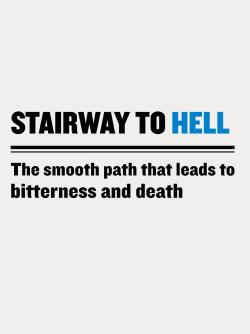The Ultimate Sacrifice!
At the eleventh hour of the eleventh day of the eleventh month of each year, the world pauses in memory of the Armistice. At this precise moment, we acknowledge the sacrifice of all those who died in the First World War defending the principles of freedom and liberty. This year is the one-hundredth time we have remembered the end of this most dreadful “war to end all wars.”
In Britain, the focus of the nation’s memorial service takes place at the Cenotaph in London’s Whitehall. Cenotaph means “empty tomb,” and on this one are etched the words, “The Glorious Dead.” There, the nation comes together—over television, the Internet, and in person—led by the Royal Family, politicians, the armed forces, and representatives of faith communities and the Commonwealth. The atmosphere is charged with emotion, as—up and down the country—life stops for two minutes in remembrance of those who died so we might live. Bugles pierce the respectful silence to sound out “The Last Post.” Wreaths are laid. Hymns are sung. Prayers are said. The band plays. And the long March Past of veterans’ groups begins.
All living memories of those who served in World War I are now lost to us, taken to the grave by those who held them. But we will not forget their sacrifice, or the sacrifices of those who have died in wars since. Year after year, the nation rehearses the same solemn vow: “We will remember them!”
In 2014, at the centennial memorial marking the beginning of the First World War, almost 900,000 ceramic poppies were prepared, one for each British and Colonial serviceman killed in the war. These were then arranged to create a sea of “blood” that flowed from and around the Tower of London—shed blood, preserving life for future generations. Afterwards, these ceramic poppies were sold to the public, one per family, as personal reminders of the war dead—the price of freedom.
Paradoxically, while we remember the dead of past wars and pray for peace, our nations continue to arm for war! Mankind, divided by ideology, religion, national aspiration, and the personal quest for power, fights on. But isn’t it time to think about doing things differently?
A Radical Solution
What if we also memorialised peace and the way to peace? What if we could memorialise a plan to change human nature and put a stop to all war? What if the “Glorious Dead” could be returned to life? Amazingly, such magnificent thoughts are not wishful thinking or the mindless meanderings of the deranged. They are the hope of your Bible!
This book points us to a very different memorial, one with striking parallels to that of the Armistice, but with a very different purpose in mind. This memorial is of enormous magnitude, universal in impact, and more essential to life than we can possibly imagine. Yet it is neglected, ignored and largely forgotten by most.
This is not the memorial of a sacrifice made by millions of fighting men for the lives of future generations. It is the sacrifice of just one Man, whose blood flowed for you, for me, and for everyone else who has ever lived—a life sacrificed made so that we could be forgiven, be set free from our sins, and receive God’s gift of eternal life (Romans 5:6–10; 6:22–23; John 3:16–17).
If His blood had not been shed for us, we would have no hope of a better life beyond this one. Yet because of His sacrifice, everyone who has ever lived—including all who died in war—will enjoy a return to life, with the prospect of eternal life.
The Man we are speaking of is, of course, Jesus the Messiah, whose death took place some 2,000 years ago in Jerusalem on the day of Passover. On every Passover since, as long-time readers of this magazine will know, faithful Christians around the world have continued to remember the events of that day as a memorial to His death and its meaning. This involves not a blood-red poppy, but a little red wine and a small piece of bread, representing His shed blood and broken body.
Shouldn’t everyone remember this Man, God’s very own Son (Matthew 14:33; 16:16), who made the ultimate sacrifice so we all might live? Is it not worth suspending normal life for just a short time to acknowledge His death and the sacrifice He made for us?
Remember the Ultimate Sacrifice
Most who died in the “Great War” were just following orders. When they were commanded to charge toward the enemy, they went like “sheep to the slaughter.” They knew the odds of survival were against them, but such was their duty. They had no choice. They had been “called up” to fight for their country and, if necessary, to make the ultimate human sacrifice. And so they responded. The flower of each nation’s youth went to war—and all too many never came back.
The “Lamb of God” had been aware of His calling and destiny from the “foundation of the world” (John 1:29; Revelation 13:8)—and never did He shirk His duty, though He hoped it could be accomplished differently (Matthew 26:39, 42). He freely sacrificed His life for the whole world, suffering a long and excruciating death preceded by humiliating abuse that tore His body apart. As His end neared, a dense darkness descended, and for several hours, life stood still. Upon His death, the ground shook as an earthquake rumbled underfoot. And wide-eyed, fearful witnesses passed the word around that it was indeed the “Son of God” who had died that day (Matthew 27:45–54).
This Son, however, did not remain in the grave. His Father raised Him to life! He also left an empty tomb—His own cenotaph—but as an emblem of life, rather than death. And He now sits at His Father’s right hand, eagerly preparing for His return to this earth. His second coming will truly be glorious (Titus 2:13–14) because He will establish His government over the entire world, ending all wars and bringing lasting peace (Isaiah 2:2–4; 9:6–7).
This year, as we remember the many human lives sacrificed in war for our freedom, let us not forget the ultimate sacrifice of Jesus the Messiah, the Son of God, who gave up His life to set us free from sin, so that we might have personal peace and the hope of eternal life. Let it be said by each one of us, for all time, “Yes, we will remember Him!”
If you would like to know more about God’s plan of salvation through Jesus Christ, and the peace and freedom it will ultimately bring to ALL mankind, please write for our free booklets, John 3:16: Hidden Truths of the Golden Verse, Your Ultimate Destiny, and The Holy Days: God’s Master Plan.






